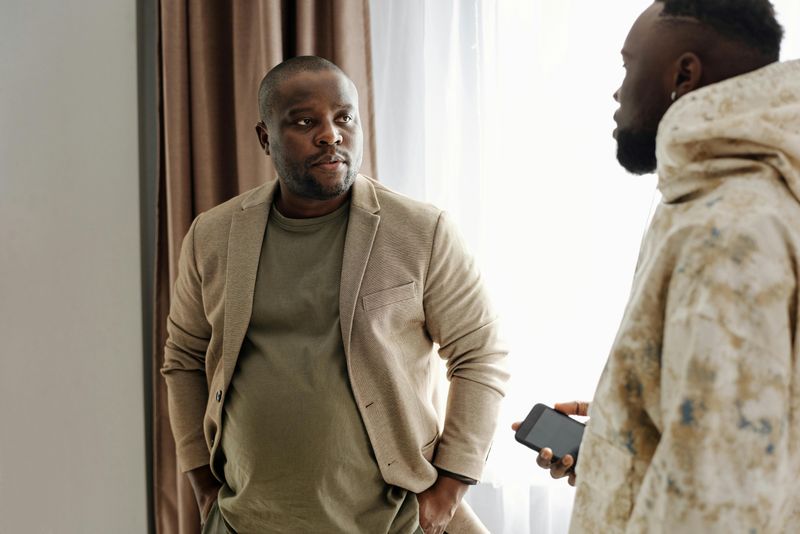13 Things You Should Never Tell Friends If You Value Your Relationship

Friendships are built on trust, but that doesn’t mean sharing everything is a good idea. Sometimes the information we share can damage our relationships rather than strengthen them. Just like you wouldn’t tell everyone your phone password, there are certain topics about your relationship that should remain private. Understanding these boundaries can help keep your friendships and romantic relationships healthy for years to come.
1. Money Troubles and Bill-Splitting Drama

Financial struggles create vulnerability that shouldn’t be broadcast to your social circle. When you reveal arguments about bills or debt problems, friends often form judgments about both you and your partner.
These money conversations can transform casual gatherings into uncomfortable situations where friends feel obligated to take sides. Even worse, financial information has a way of spreading beyond your intended audience.
Keep money discussions between you and your partner, consulting financial advisors when needed instead of friends. Your financial journey belongs to your relationship, not your entire social network.
2. Your Partner’s Past Mistakes

Sharing stories about your partner’s infidelity or serious relationship blunders creates ripples that never fully disappear. Friends remember these transgressions long after you’ve forgiven them, creating permanent shadows over how they view your relationship.
The support you receive in the moment might feel good, but the long-term damage to your partner’s reputation can be irreparable. Your friends may continue to judge them based on past actions rather than who they are today.
If you need to process relationship difficulties, consider speaking with a therapist who has no personal connection to either of you.
3. Unaddressed Relationship Concerns

Venting to friends about issues you haven’t discussed with your partner creates a dangerous communication triangle. Your friends hear one-sided complaints while your partner remains completely unaware that these grievances exist.
This pattern builds resentment in your relationship while positioning your friends as judges rather than supporters. The feedback you receive might validate your feelings temporarily but does nothing to solve the actual problem.
Always give your partner the first opportunity to hear and address your concerns. This direct approach builds trust and demonstrates respect for your relationship’s privacy and communication channels.
4. Private Photos and Intimate Messages

Showing friends the flirty texts or revealing photos your partner sent only to you violates the sacred trust of intimacy. Those messages were created in a moment of vulnerability intended for your eyes alone.
Many people would feel deeply betrayed knowing their private expressions of affection became group entertainment. This breach of privacy can create lasting insecurity about sharing intimate moments in the future.
Treasure these personal exchanges as special connections between just the two of you. The temporary social currency gained by sharing them isn’t worth the damage to your relationship’s foundation of trust.
5. Details About Their Dating History

Your partner’s romantic past belongs to them, not you, and certainly not your friend group. Sharing stories about their previous relationships, especially unflattering ones, betrays confidence and shows disrespect for their privacy.
Everyone deserves the right to control their own narrative and decide what parts of their history they want known. When you become the storyteller of their past, you remove their agency in how others perceive them.
Remember that their previous relationships helped shape who they are today – the person you care about. Honor that journey by keeping their history confidential unless they’ve explicitly given permission to share.
6. Bedroom Confidentials

The intimate details of your sex life form one of the most sacred spaces in your relationship. Friends don’t need to know about frequency, preferences, or performance – these revelations can make your partner feel like their most vulnerable moments are on display.
What seems like harmless girl talk or locker room banter can fundamentally change how your friends perceive your partner. Once shared, these intimate details can’t be unheard, potentially creating awkward dynamics when your friends and partner interact.
Protect this special part of your relationship by keeping physical intimacy private. Your sex life belongs in your bedroom, not in conversation over coffee.
7. Secrets They’ve Trusted You With

When your partner shares their deepest fears, childhood traumas, or personal struggles, they’re placing immense trust in your discretion. Revealing these confidences to friends, even your closest ones, represents a profound betrayal.
These vulnerable disclosures weren’t meant for public knowledge – they were shared in the safety of your relationship. Your partner deserves to control who knows their personal struggles and insecurities.
True intimacy depends on this sacred trust. Before sharing anything personal about your partner, ask yourself: “Would they feel comfortable knowing I’m discussing this?” If there’s any doubt, keep it to yourself.
8. Play-by-Play of Your Arguments

Recounting every word of your latest relationship fight gives friends an incomplete picture frozen in your worst moment. These detailed replays often paint your partner in an unfair light since we naturally frame arguments to favor our perspective.
Friends hearing these accounts form judgments based on your emotional retelling rather than the full context. Even after you’ve resolved the conflict, their impression of your partner remains tainted by these negative snapshots.
Instead of broadcasting disagreements, focus that energy on resolving them directly with your partner. If you need perspective, share the general issue without the hurtful specifics that should remain private between you two.
9. Gift Disappointments

Complaining about your partner’s thoughtful-but-missed-the-mark birthday present might seem harmless, but it broadcasts ingratitude and disrespect. That watch you didn’t love or the concert tickets for a band you’re not crazy about? Those represent your partner’s attempt to make you happy.
Friends who hear these complaints often silently judge both your appreciation level and your partner’s efforts. The temporary validation from friends who agree “you deserved better” undermines the genuine thought behind the gift.
Express gratitude for the intention rather than fixating on execution. If gift-giving is consistently off-target, have a private conversation with your partner about wish lists or experiences you’d enjoy.
10. Their Personal Insecurities

Your partner’s worries about their receding hairline, career setbacks, or body image concerns were shared in moments of vulnerability, not as material for your next brunch conversation. These insecurities represent raw, tender spots in their self-perception.
Imagine how betrayed you’d feel discovering your private anxieties became group discussion topics. Even sympathetic conversations about these issues violate the trust your partner placed in you as their safe space.
Be the vault that protects their vulnerabilities rather than exposing them. Their insecurities should find compassion and reassurance with you, not become knowledge shared among your social circle.
11. Their Opinions About Your Friends

Revealing that your partner finds your best friend annoying or thinks your college roommate is a bad influence creates unnecessary friction in your social world. These honest opinions were likely shared in private moments of frustration or concern.
Friendships and romantic relationships fulfill different needs in your life, and forcing them to perfectly align creates tension. When you disclose these opinions, you place friends in awkward positions where they feel judged or disliked.
Unless there’s a serious concern about safety or wellbeing, keep your partner’s friend opinions to yourself. This boundary protects both relationships and prevents friends from feeling uncomfortable around your partner.
12. Family Friction and In-Law Issues

Family relationships come with complicated histories and dynamics that outsiders can’t fully understand. Venting about your partner’s difficult mother or sharing the latest holiday drama might feel therapeutic, but it often backfires.
Friends form lasting impressions based on these negative stories, making future social gatherings awkward when family members are present. Even worse, your partner might feel caught between defending their family and supporting you.
Family challenges should generally stay within the family or be discussed with a therapist. Remember that while friends may come and go, family connections often last a lifetime for your partner, making respectful boundaries especially important.
13. Unflattering Partner Comparisons

Remarking that your friend’s husband always brings flowers while yours forgets anniversaries creates a competitive framework that damages both relationships. These comparisons reduce complex partnerships to simplified scorecards of romantic gestures, income levels, or physical attributes.
Your relationship exists within its own unique ecosystem of shared values, history, and compromises. When you measure your partner against others, you’re using an incomplete yardstick that ignores the full context of both relationships.
Appreciate your partnership for its own merits rather than holding it against external standards. The grass often looks greener in relationships where you’re not seeing the behind-closed-doors challenges.

Comments
Loading…